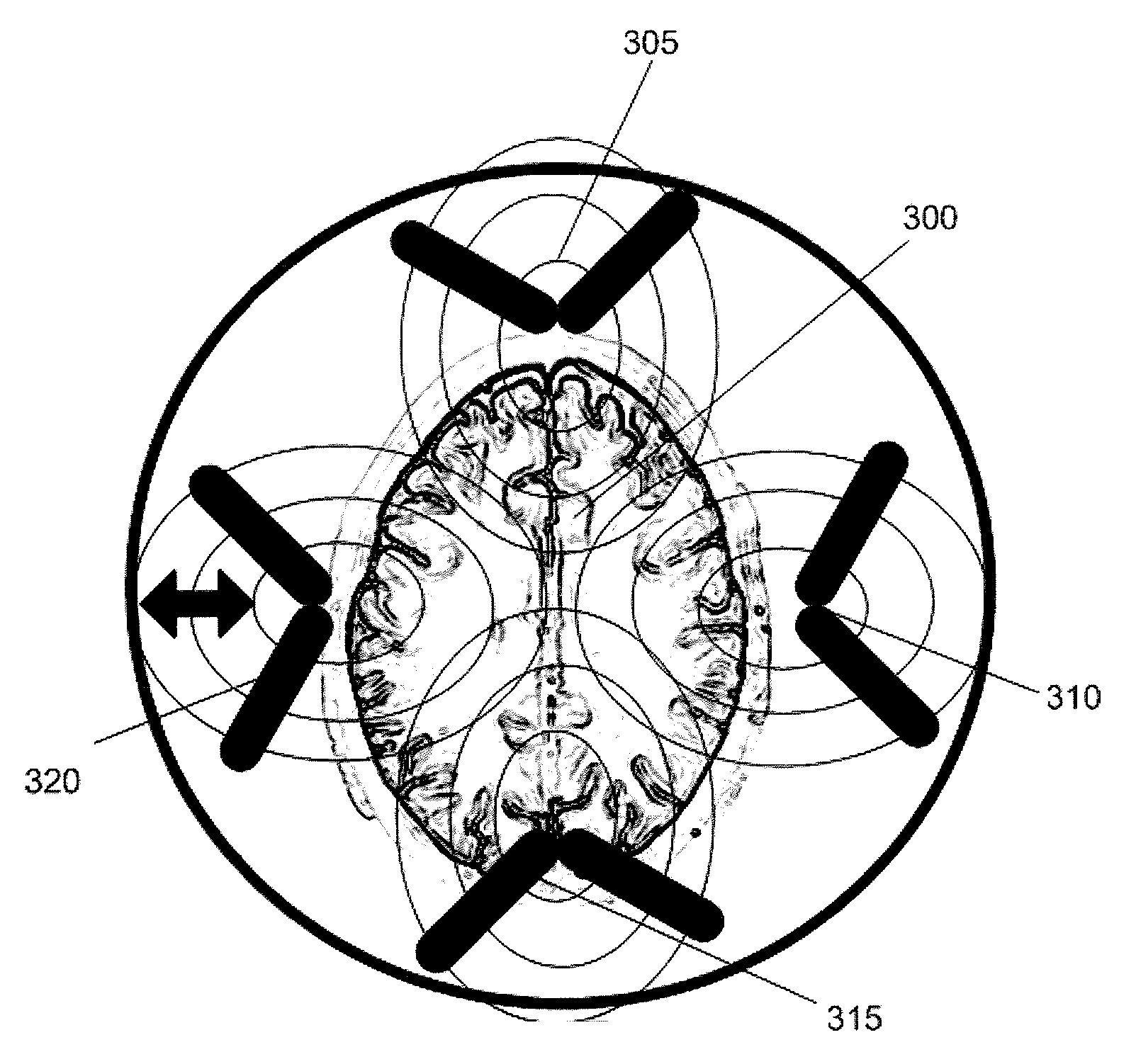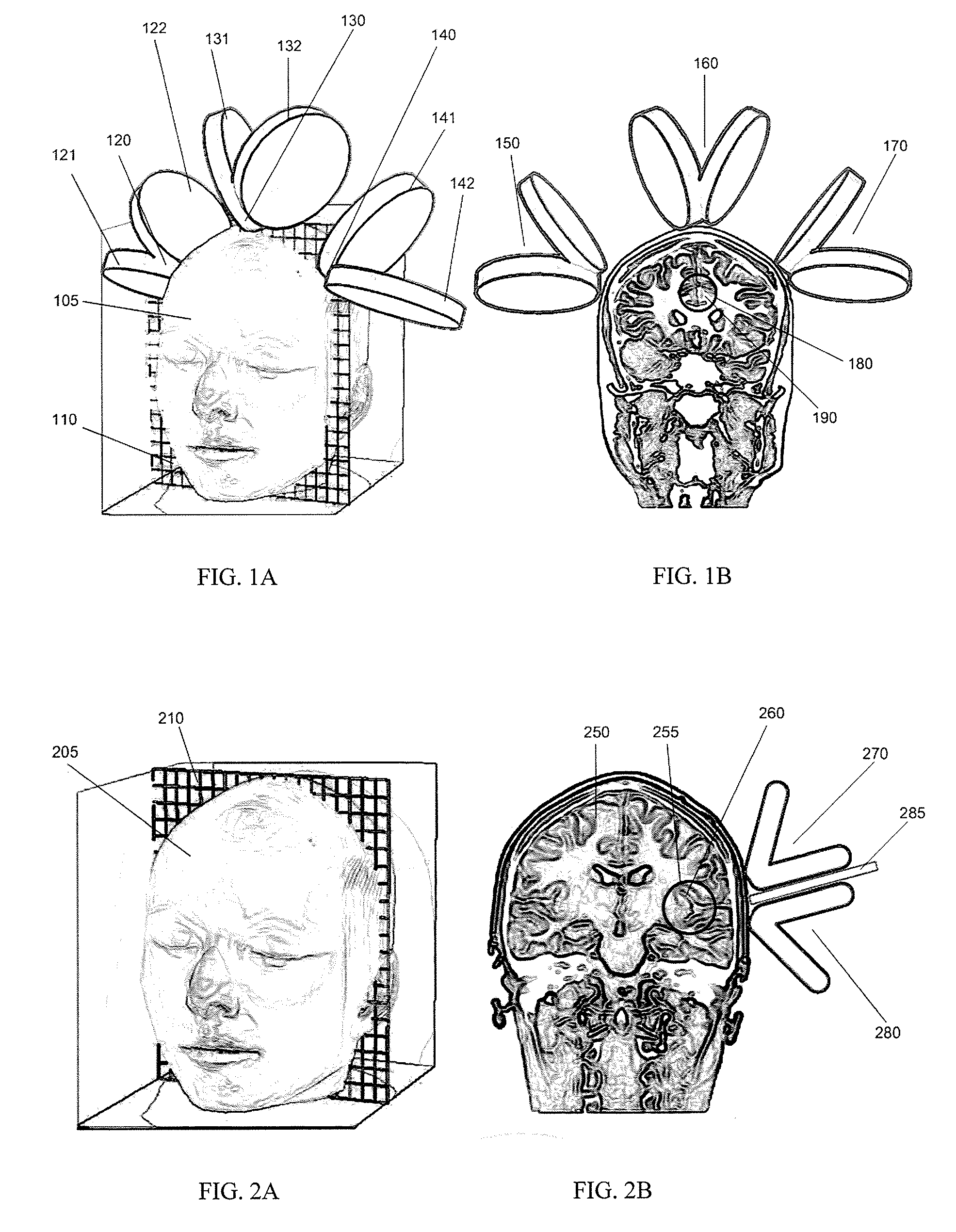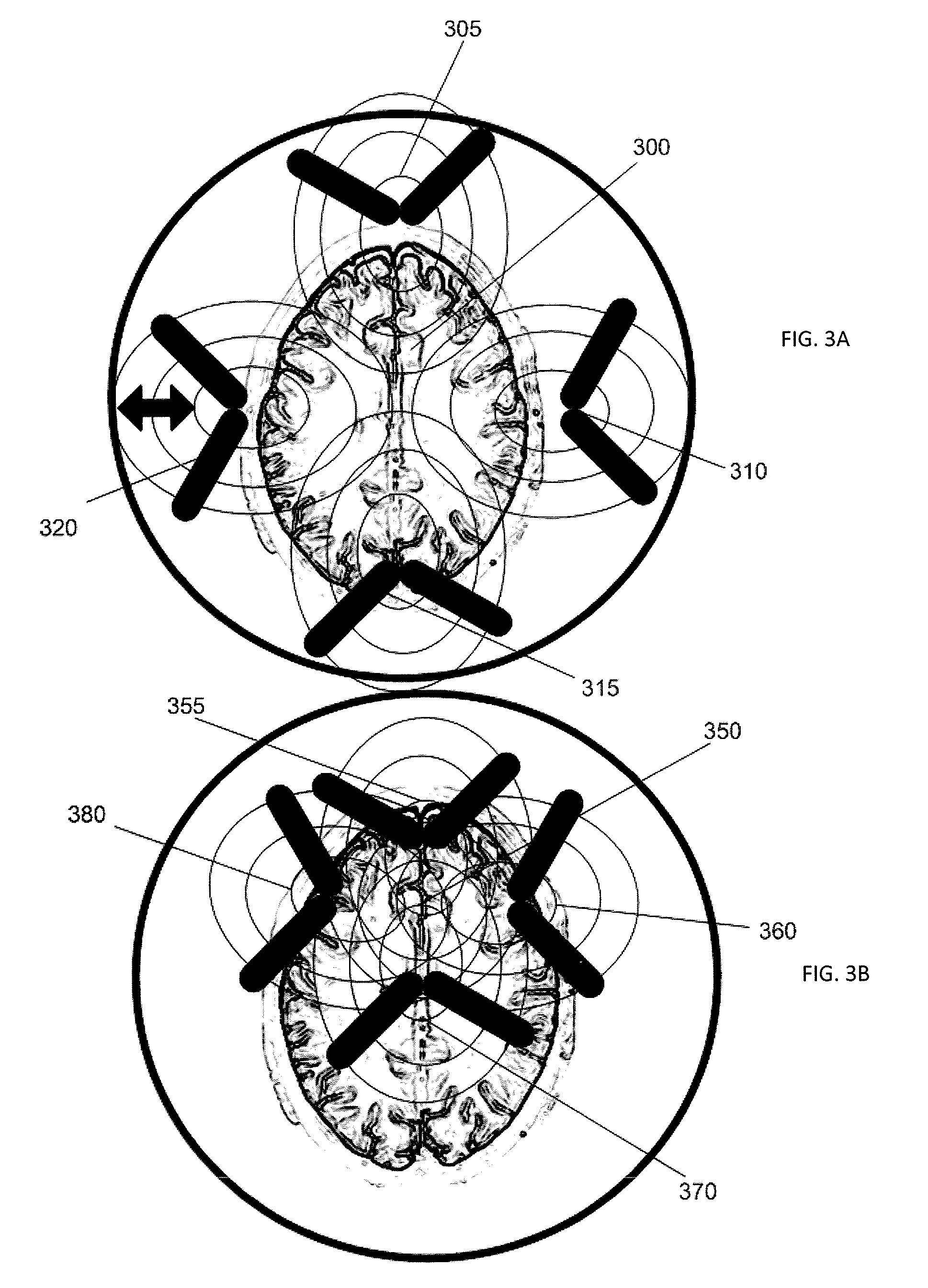Transcranial magnet stimulation of deep brain targets
a transcranial magnet and target technology, applied in the field of transcranial magnetic stimulation, can solve the problems of power applied to any given electromagnet, and/or the rate at which power is applied, and achieve the effect of stimulating a deep targ
- Summary
- Abstract
- Description
- Claims
- Application Information
AI Technical Summary
Benefits of technology
Problems solved by technology
Method used
Image
Examples
Embodiment Construction
[0039]In general, the methods of Transcranial Magnetic Stimulation (TMS) described herein may be used to stimulate a deep brain region. In particular, these methods may be applied to specifically stimulate a deep brain region such as the cingulate gyrus or the insula. The method for stimulating these deep brain regions may include the steps of initially positioning one, or more typically a plurality of, TMS electromagnets around the patient's head. The plurality of TMS electromagnets may be directed at the desired deep brain target (e.g., insula or cingulate region). Alternatively, as described in greater detail below, the TMS electromagnets may be directed to a sulcus that is adjacent to the deep brain target. For example, the sulcus may be electrically continuous or connected to the deep target. Thus, any of the methods described herein may be performed in conjunction with brain imaging showing the location of the target region, as well as the configuration of any nearby sulci.
[00...
PUM
 Login to View More
Login to View More Abstract
Description
Claims
Application Information
 Login to View More
Login to View More - R&D
- Intellectual Property
- Life Sciences
- Materials
- Tech Scout
- Unparalleled Data Quality
- Higher Quality Content
- 60% Fewer Hallucinations
Browse by: Latest US Patents, China's latest patents, Technical Efficacy Thesaurus, Application Domain, Technology Topic, Popular Technical Reports.
© 2025 PatSnap. All rights reserved.Legal|Privacy policy|Modern Slavery Act Transparency Statement|Sitemap|About US| Contact US: help@patsnap.com



